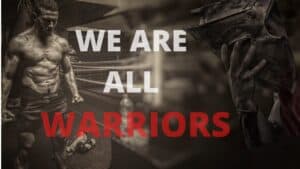Adaptive golf is more than just a sport; it’s a transformative tool that offers numerous therapeutic benefits for injured veterans. By modifying the traditional game to accommodate physical limitations, adaptive golf provides veterans a unique opportunity to experience the joy of golf while promoting healing and recovery. This blog post will explore how adaptive golf aids in physical rehabilitation, enhances mental well-being, and facilitates social reintegration for veterans.

Physical Recovery Through Adaptive Golf
Adaptive golf can be instrumental in the physical rehabilitation of injured veterans. Here’s how it contributes to physical recovery:

• Improved Mobility and Coordination: Adaptive golf encourages veterans to engage in movements that improve balance, coordination, and flexibility. Using specially designed equipment, veterans can perform swinging motions that enhance muscle strength and joint mobility without causing strain.
• Customized Equipment: With adaptive equipment like seated golf carts, specialized grips, and prosthetic-friendly clubs, veterans can comfortably participate in the sport, making it accessible to individuals with various physical disabilities.

• Personalized Training: Many adaptive golf programs offer personalized training sessions with instructors who understand the unique needs of veterans, helping them gradually build physical endurance and overcome physical limitations.
Mental Well-being and Adaptive Golf
Beyond physical benefits, adaptive golf plays a significant role in enhancing veterans’ mental health:
• Stress Relief and Relaxation: Golf’s serene environment provides a peaceful setting where veterans can escape daily stressors. The focus on gameplay allows participants to immerse themselves in the moment, offering a mental break and promoting relaxation.
• Boosting Confidence: Successfully navigating the challenges of adaptive golf fosters a sense of accomplishment and boosts self-esteem. As veterans master new skills, they build confidence that extends beyond the golf course, positively impacting various aspects of life.
• Mindfulness and Focus: The concentration required in golf promotes mindfulness, helping veterans focus on the present moment. This practice of mindfulness is particularly beneficial for those dealing with anxiety, depression, or PTSD.
Social Reintegration Through Golf
Adaptive golf fosters a sense of community and belonging, aiding in veterans’ social reintegration:
• Building Connections: Adaptive golf provides a platform for veterans to connect with others who share similar experiences. Through friendly competitions, veterans form bonds, share stories, and build lasting friendships, creating a supportive community.
• Family Involvement: Many adaptive golf programs encourage family participation, allowing veterans to bond with loved ones over shared activities. This involvement strengthens family ties and creates opportunities for positive interactions.

• Community Engagement: Adaptive golf events and tournaments bring veterans together with the wider community, promoting understanding and inclusivity. These interactions help bridge the gap between veterans and civilians, fostering mutual respect and support.
Real-Life Success Stories
To illustrate the impact of adaptive golf on veterans, here are a few inspiring success stories:
1. John’s Journey to Recovery: After sustaining severe injuries during his service, John found solace in adaptive golf. The sport helped him regain physical strength and provided a sense of purpose. Today, John is not only an avid golfer but also an advocate for adaptive sports, inspiring fellow veterans to embrace the healing power of golf.
2. Sarah’s Path to Mental Wellness: Struggling with PTSD after her military service, Sarah discovered adaptive golf as a therapeutic outlet. The sport allowed her to manage anxiety and connect with others facing similar challenges. Sarah credits adaptive golf with giving her a renewed sense of hope and confidence.
3. Mike’s Social Reintegration Success: Injured in combat, Mike felt isolated from civilian life. Participating in adaptive golf events introduced him to a supportive community of veterans. The camaraderie he found on the golf course played a pivotal role in his journey toward social reintegration.
How to Get Involved
For veterans interested in exploring the benefits of adaptive golf, here are some ways to get started:
• Locate a Program: Many organizations offer adaptive golf programs specifically designed for veterans. Research local golf courses or veteran support groups that provide access to these programs.
• Attend a Workshop: Participating in a workshop or clinic can provide valuable insights into adaptive golf techniques and equipment, helping veterans gain confidence and skills.
• Connect with a Mentor: Consider reaching out to experienced adaptive golfers who can provide guidance, encouragement, and support throughout the journey.
Finally…..
Adaptive golf is a powerful tool that empowers injured veterans to reclaim their lives and embrace a healthier, more fulfilling future. By promoting physical recovery, enhancing mental well-being, and facilitating social reintegration, adaptive golf offers veterans a holistic approach to healing. Whether you’re a veteran or someone interested in supporting this incredible cause, adaptive golf opens doors to new possibilities and connections.
Through the transformative power of adaptive golf, injured veterans can rediscover joy, camaraderie, and strength, proving that healing extends beyond physical recovery to encompass the mind and spirit.
